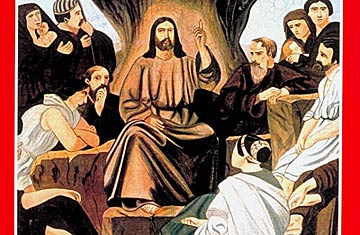
(4 of 11)
These are only the flashiest, most visible signs of the Evangelicals' rising prosperity. The real progress of the faith is less visible. It goes on at the grass-roots level from one convert to another in thousands of local congregations, some of them quite small and isolated. It is a highly personal brotherhood. And for most Evangelicals the experience of receiving Christ is the principal event of any Christian life.
Accounts of such conversions vary sharply. Some saved souls have been dramatic sinners, as were Cleaver and Watson, for example. But the vast majority of born-again religious experiences seem to come quite simply and quietly, at least as they are recollected later. In March 1976, when President Carter decided to tell a press conference how he had "formed a very close, intimate, personal relationship with God through Christ," he added: ''It wasn't mysterious. It might have been the same kind of experience as millions of people have who become Christians in a deeply personal way." Says Marabel Morgan of her own experience, which took place when she was working as a beautician and rinsing a client's newly washed hair: "There with the water running I was born again. There was no bolt of lightning, only peace. I was tickled to death."
Non-Evangelical Christians can understand the stark conversion of scapegraces and rapscallions, since the history of Christianity is full of agonizing personal reform (St. Paul. St. Augustine). Recalling the anguish of saints and mystics in their lifelong search for a flash from heaven or a sudden touch of grace, some Christians find it difficult to accept the validity of easy Evangelical contacts with God. Still, grace has always been amazing, and that judgment may be too harsh. Whether they wrestled mightily in their souls for a private sense of the divine presence or slipped salvation on as easily as a glove, a certain radiance, kindness and integrity do seem to flow from many born-again Christians.
The big question, which may determine whether or not the new Evangelicals eventually change the balance of power in U.S. Protestantism, is what they will do collectively with this passionate sense of God's presence in everyday life. Mainstream Protestantism, though dutifully devoted to social reform, often seems drained of vitality. For years it undervalued a notable Evangelical asset, the kind of religious zeal that causes embarrassment but might work miracles. One critic of the Evangelicals. Activist Preacher William Sloane Coffin Jr., of New York City's Riverside Church, ruefully tells the story of the Evangelical who said. "You could ice skate down the center aisle of any New England church on Sunday morning." Concedes Coffin: "The warmth of the Evangelicals is all to the good."
Perhaps partly owing to a shortage of warmth, and even more to a loss of religious authority, the four churches that are the epitome of the cultured Protestant Establishment—United Methodist, United Presbyterian. Episcopal and United Church of Christ (Congregational) —have suffered a net loss of 2.7 million members over the past decade. Conversely, Jimmy
